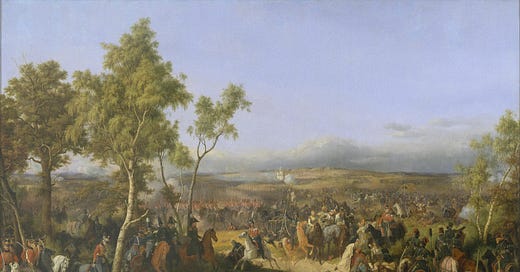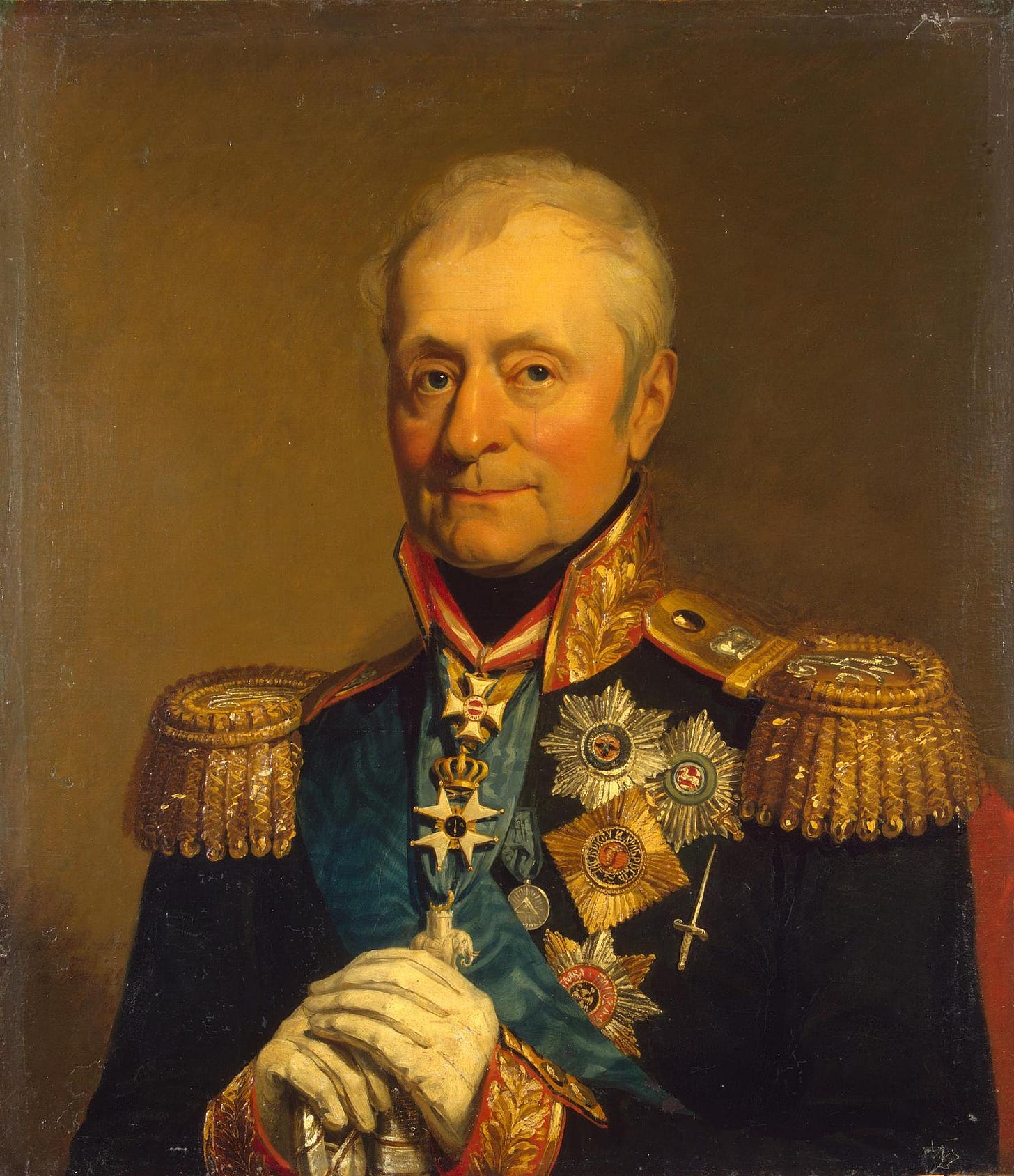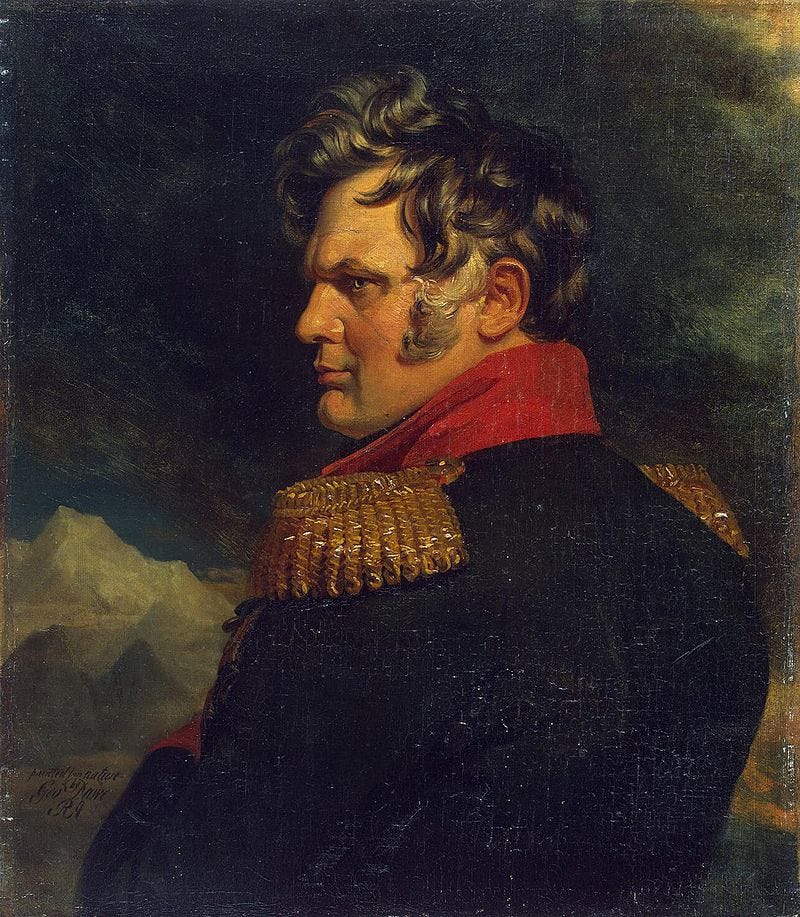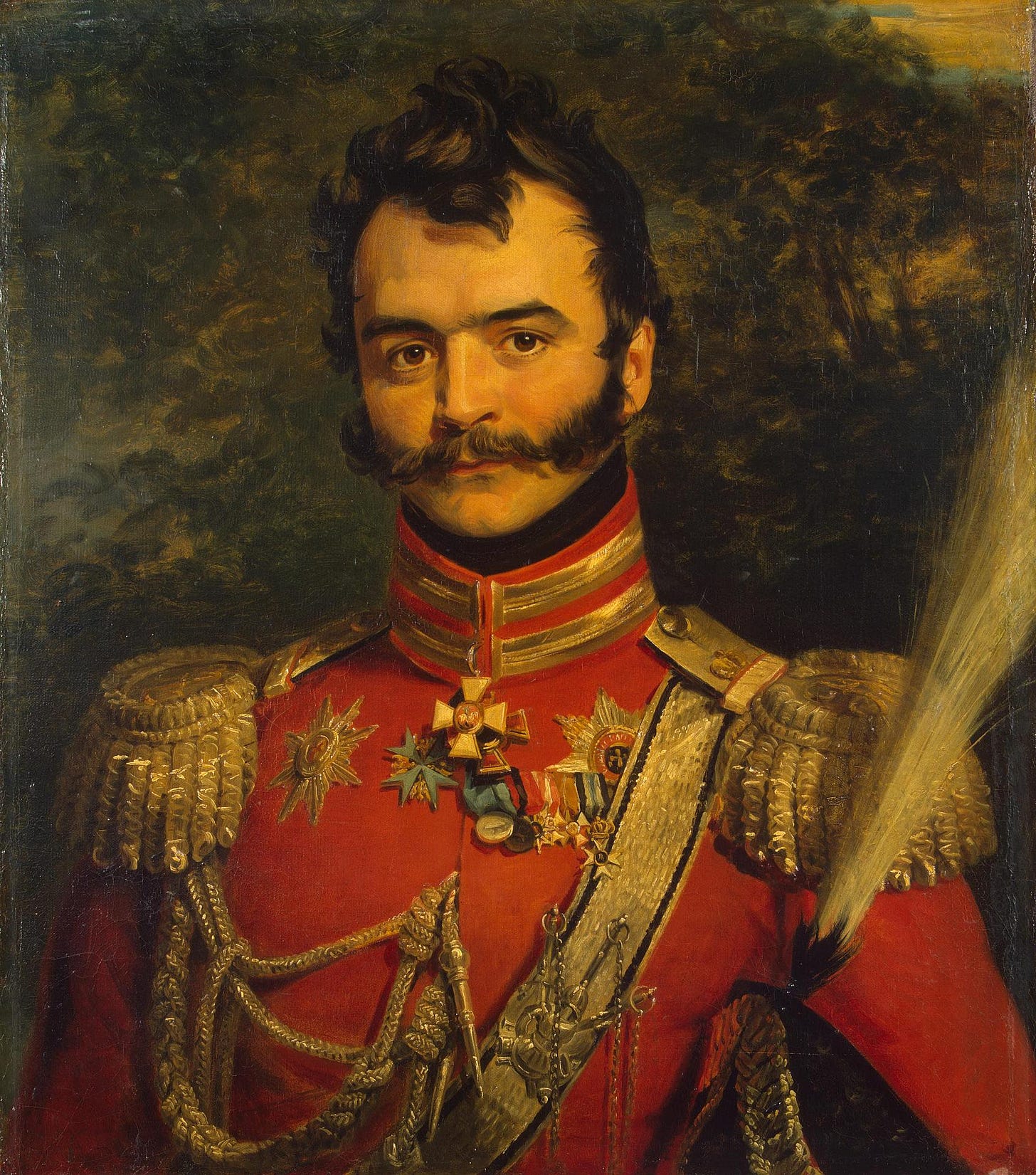Fighting With Ghosts
War & Peace | Week 41 | Contains spoilers up to Volume 4 Book 2 Chapter 9
First thoughts
OK, I get it. Week 41 is no one's favourite week of War and Peace. No Pierre. No Natasha. No Denisov.
Denisov, where are you? There's this guy called Orlov-Denisov. He gets the glory. But he's not our man, so why do we care?
Well quite. But this is where reading slowly comes into its own. We're invested now in the lives of our big characters. We've travelled hundreds of pages in their shoes. January was a lifetime ago. And it would be easy to flip ahead to find out what happens next.
But stay with me. All life is here. It's worth the wait.
Stay with Shapovalov. The Cossack hunter shooting hare. His lousy shot leading him to the enemy's camp. Picture his face, first of horror then delight.
Stay with Kutuzov's orderly, entrusted with the battle plans. Searching on an empty stomach for a general who doesn't want to be found. A man too busy dancing and drinking to be bothered about what comes next.
Stay with Kutuzov himself. Only a few months left in his bones. No one listens when he says hold back. No one listens when he says advance. He's the leader, furious at his own impotence. As history moves ever on.
Stay with Bagovut. A general we meet for half a page. Long enough to know him completely. The quiet man who keeps his temper, then from nowhere, explodes into a fit of rage. Gets himself killed for acting out of character. Maybe the most tragic way to go?
Stay with Napoleon ranting. A Great Man who doesn't know he's lost. Grand proclamations that go on and on, although there's no one there to listen. Stay and listen, even if it's just to laugh.
And stay with Tolstoy. Obsessive, sardonic, pedantic Tolstoy. Banging on about how history's not about the genius of one man, but the free forces of the million. Shapovalov's hare. The orderly's stomach. Bagovut's breaking point.
He's the narrator of this novel and he should know better. He should know it's time to move along.
But this is life in all its forms. The hobby horse and the soapbox. Truth-seekers and war-makers. And writers fighting with ghosts.
This post is long and may have been snipped by your email provider. I recommend viewing the full post here or in the Substack app.
Character cheat sheet
To the disappointment of many, we didn’t meet any of our main protagonists this week. Hold on there, normal service will be resumed shortly. In the meantime, check out the bling on these uniforms:
Mikhail Kutuzov Commander-in-chief of the Russian army. Tolstoy rather unkindly calls him “decrepit” (he’s 67). His strategy has been to wait for new recruits and reinforcements and the inevitable retreat of Napoleon.
Levin August von Bennigsen The German general with meticulous plans at Borodino. He and the emperor don’t like Kutuzov’s delay. He’s happy to encourage an offensive at the Battle of Tarutino.
Aleksey Petrovich Yermolov So we last saw Yermolov threatening to blow up a bridge in Moscow as Russian troops plundered the city. Here he’s out partying with his mates when he should be getting ready for battle. Tolstoy probably has a bit of an axe to grind here. The Russian general is romanticised in Pushkin’s poetry and admired for his bravery and skill. But he was a lead participant in the Circassian genocide against the Muslim inhabitants of the Caucasus. Something that Tolstoy would later write about in his novella Hadji Murat.
Vasily Orlov-Denisov Not, sadly, Vasily Denisov, our lisping hussar. Orlov-Denisov is a Cossack Russian general who leads the only useful bit of fighting at Tarutino. In Tolstoy’s “Some Words About War and Peace”, he states his name choice for Denisov was “my mistake”, and his fictional character is not meant to resemble the historical Orlov-Denisov in any way. (But where is Denisov?)
Karl Gustav von Baggovut Tolstoy can introduce a character on one page and kill him off on the next, and leave you feeling like you’ve known the guy your whole life. This “old soldier of placid temperament” flies into a rage over the omnishambles of the battle, gets quite sweary, and then rides off to his death. It’s a full character arc in two paragraphs.
Discussion Questions
Do you think Tolstoy was right to include these chapters in War and Peace?
Do they add or subtract from your experience of the book?
Are you convinced by Tolstoy’s argument that events unfolded out of necessity rather than strategic genius?
Join the discussion
Let me know your thoughts in the comments. Next year, I will organise the discussion in the chat area of Footnotes and Tangents. This year, you can also connect with other readers in the group chat on Instagram and the Discord server. Let me know if you want to be added to either of these.
Choose your own adventure
Thank you for reading this Whisky and Perseverance update. Below, there is additional research, reflections and discussion for paid subscribers. These readers keep this show on the road, and I couldn’t do this without them.
Remember, you can pick and mix which
letters you want to receive by turning on and off notifications on your manage subscription page. By default, you won’t receive read-along updates unless you opt-in.Keep reading with a 7-day free trial
Subscribe to Footnotes and Tangents to keep reading this post and get 7 days of free access to the full post archives.










